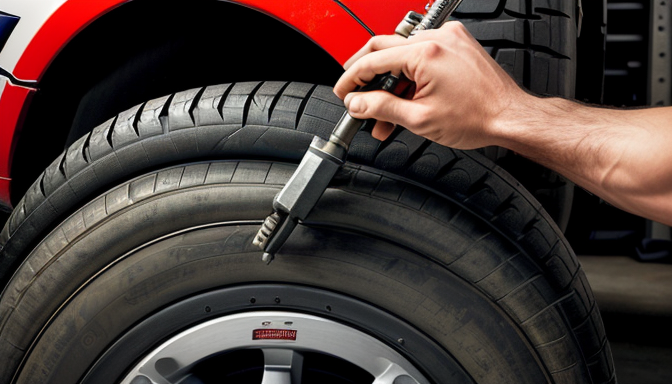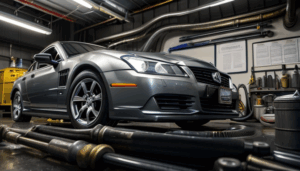Understanding the importance of regular car maintenance can significantly extend the lifespan of your vehicle. Imagine your car as a loyal companion; just like any relationship, it requires care and attention to thrive. Neglecting maintenance is like ignoring a friend’s needs—it can lead to costly breakdowns and frustrations. Regular check-ups not only keep your car running smoothly but also enhance your driving experience. Think of maintenance as a preventive shield that protects against unforeseen issues. From oil changes to tire rotations, each practice plays a vital role in ensuring reliability on the road.
Moreover, the benefits of consistent maintenance ripple through your entire driving experience. A well-maintained car is not just a matter of longevity; it also boosts fuel efficiency and safety. By investing a little time and effort, you can avoid major repairs and enjoy peace of mind. So, why wait? Start treating your vehicle with the respect it deserves today!
Regular Oil Changes
Frequent oil changes are not just a suggestion; they are a necessity for maintaining your vehicle’s engine health. Think of your car’s engine as a finely tuned machine that needs the right lubricant to function smoothly. Just like how our bodies need water, your engine requires clean oil to reduce friction and prevent wear and tear. Neglecting oil changes can lead to a buildup of sludge, which can severely damage engine components and lead to costly repairs down the line.
So, how often should you change your oil? While it can vary based on your vehicle and driving habits, a general rule of thumb is every 3,000 to 5,000 miles. However, always consult your owner’s manual for specific recommendations. Regularly changing your oil not only enhances performance but also improves fuel efficiency, saving you money at the pump.
To make the most of your oil changes, consider the following:
- Choose the right oil type for your engine.
- Check your oil level regularly between changes.
- Look for any signs of leaks or unusual noises.
In summary, keeping up with regular oil changes is a small task that can lead to big rewards. It’s an investment in your vehicle’s longevity and reliability, ensuring that you can hit the road with confidence.

Tire Care and Rotation
Tire care is not just about having air in your tires; it’s about ensuring your safety and maximizing your vehicle’s performance. Think of your tires as the shoes of your car; just like you wouldn’t wear worn-out shoes, you shouldn’t drive on worn tires. Regular tire rotation is essential because it promotes even wear, extending the life of your tires significantly. When you rotate your tires, you’re not just prolonging their lifespan; you’re also enhancing your vehicle’s fuel efficiency and traction on the road.
Consider this: tires that are unevenly worn can lead to poor handling and increased stopping distances, which could be the difference between a safe drive and an accident. To keep your tires in top shape, remember to check their pressure at least once a month and before long trips. Under-inflated tires can lead to blowouts and decreased fuel efficiency, so keep an eye on them!
Here’s a quick checklist for tire maintenance:
- Check tire pressure monthly.
- Rotate tires every 5,000 to 7,500 miles.
- Inspect for tread wear and damage regularly.
By following these simple steps, you’re not just caring for your tires; you’re investing in your vehicle’s longevity and your peace of mind on the road. Remember, your tires are your only contact with the road, so give them the attention they deserve!
Brake System Maintenance
When it comes to your vehicle’s safety, should never be overlooked. Think of your brakes as the lifeline of your car; without them, you’re sailing on a ship with no anchor! Regular inspections can save you from dangerous situations and costly repairs. But what should you be looking for?
Pay attention to signs like squeaking noises, a soft brake pedal, or vibrations when you brake. These are red flags that indicate your brakes might need some TLC. It’s essential to replace worn brake pads and check the brake fluid regularly. Not only does this keep you safe, but it also enhances your car’s performance.
Here’s a quick checklist for your brake system maintenance:
- Inspect brake pads every 6 months.
- Check brake fluid levels regularly.
- Listen for unusual sounds while braking.
- Monitor the responsiveness of the brake pedal.
By keeping an eye on these factors, you ensure that your vehicle remains reliable and safe on the road. Remember, a little maintenance goes a long way in preventing major issues down the line!

Fluid Checks and Replacements
Maintaining proper fluid levels is essential for your vehicle’s performance and longevity. Think of your car as a well-oiled machine; just like a human body needs water, your vehicle needs various fluids to function optimally. Regularly checking and replacing fluids such as engine oil, coolant, and brake fluid ensures that everything runs smoothly. Neglecting these checks can lead to overheating, poor performance, and even catastrophic failures.
For instance, consider your engine oil. It acts like the blood in your car, lubricating and protecting the engine’s moving parts. If it gets too dirty or low, it can cause serious damage. Similarly, coolant is crucial for regulating engine temperature, while brake fluid is vital for your safety. A simple fluid check can save you from hefty repair bills and keep your ride safe and reliable.
Here’s a quick overview of essential fluids and their importance:
| Fluid Type | Importance |
|---|---|
| Engine Oil | Lubricates engine parts, reduces friction, and prevents wear. |
| Coolant | Regulates engine temperature, prevents overheating. |
| Brake Fluid | Ensures effective braking performance and safety. |
In conclusion, don’t underestimate the power of fluid checks and replacements. They are a small investment for a big return in terms of performance and safety. So, make it a habit to check your fluids regularly and keep your vehicle in top shape!
Battery Maintenance
When it comes to your vehicle, a well-maintained battery is like the heart of a healthy body—it keeps everything running smoothly. Regular battery maintenance is essential to avoid those dreaded surprises when you turn the ignition and hear nothing but silence. Have you ever been late to an important meeting because your car wouldn’t start? That’s a classic case of neglecting battery care!
To keep your battery in top shape, consider these simple yet effective practices:
- Check for Corrosion: Look for any signs of corrosion on the terminals. A clean connection is crucial for optimal performance.
- Inspect Connections: Ensure that the battery cables are tightly connected. Loose connections can lead to poor performance.
- Test Voltage: Regularly test your battery’s voltage. A healthy battery should read around 12.6 volts or more.
By staying proactive with these maintenance tips, you can extend the life of your battery and improve your vehicle’s overall performance. Remember, a little attention goes a long way in preventing unexpected breakdowns!
Frequently Asked Questions
- How often should I change my oil?
It’s generally recommended to change your oil every 5,000 to 7,500 miles, but check your owner’s manual for specific guidelines tailored to your vehicle.
- What are the signs that my brakes need maintenance?
If you hear squeaking or grinding noises, feel vibrations when braking, or notice a longer stopping distance, it’s time to have your brakes checked.
- How can I tell if my tires need rotation?
Uneven tread wear or if your vehicle pulls to one side can indicate it’s time for a rotation. Regular checks every 5,000 miles can help maintain tire health.
- What fluids should I regularly check in my car?
Make sure to check the oil, coolant, brake fluid, transmission fluid, and windshield washer fluid. Keeping these at proper levels is crucial for performance!
- How can I maintain my car battery?
Regularly inspect for corrosion, ensure connections are tight, and consider a battery test if it’s over three years old to avoid unexpected breakdowns.

